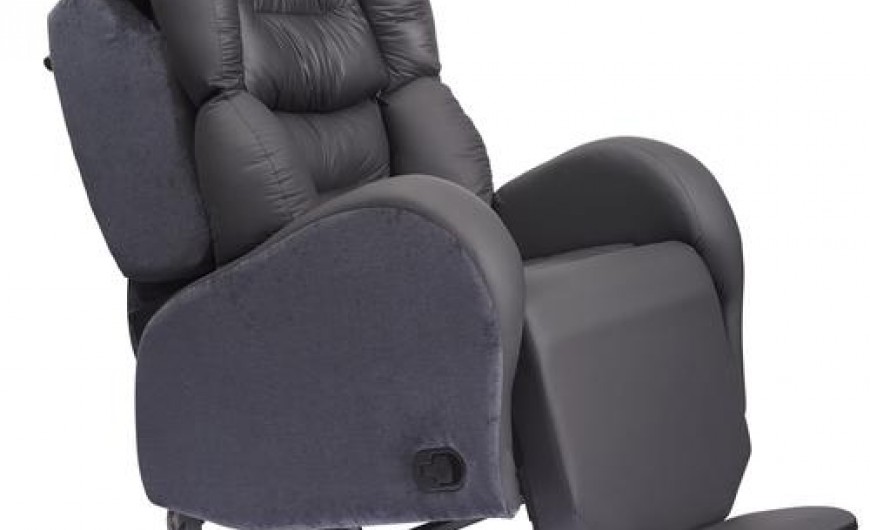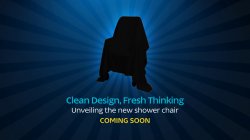1. Look for adjustability without the need for accessories
Adjustable, modular chairs allow you to meet the needs of multiple users while reducing your stockholding. Lots of chairs look like they’re easy to adapt, but very often this adjustability requires expensive accessories.
The accessory-driven approach has 2 negative consequences. First, it increases cost of ownership – in many cases, these accessories are expensive. Second, it means adjusting the chair is complicated. As a result, it’s harder to get the adjustment right for each user, leading to knock-on effects on posture and pressure management. It also limits the chair’s flexibility, because you can’t rotate it among residents as easily.
Instead, look for adjustability without the need for accessories.
The Saros modular chair is a perfect example of this. You can adjust the depth, width, height, hip angle, seat ramping and armrest height in minutes without tools. With a bit of training, it’s easy for staff to adapt the chair for a new user, but the adjustments are hidden so carers don’t accidentally make changes that affect posture.


Unlike many chairs (which have a flat and firm back rest), the Saros’ back rest is filled with a soft fibre.This means it’s more flexible – it accommodates and absorbs the majority of back shapes and postures to give better support to more users.
2. Consider the durability and maintenance requirements
It goes without saying you want your chairs to last so you reduce lifetime costs. And there are many factors that play into this, most importantly durability and maintenance requirements.
It’s common for users with complex needs to make lots of involuntary movements. Most specialist seating is constructed with a rigid frame and seat board. This means the frame has to withstand the force of that constant movement, which leads to wear and tear and reduces lifespan.
The Saros mitigates this risk with a webbed seat base, which acts as a shock absorber so the force of movement doesn’t all fall on the frame. The chair is therefore able to accommodate the force, so it lasts longer and reduces the inevitable postural changes that come with those movements.
The webbed seat base also gives to the individual pelvis, safely and comfortably accommodating users regardless of their size or asymmetrical posture. This means you can use a medium/high risk static foam cushion without the risk of bottoming out or increasing pressure points around the pelvis’ contours. The common alternative to this is an air cushion. However, an air cushion requires regular maintenance to top it up – and it can lead to increased body tone when we take into consideration that dynamic movement reduces a stable, consistent base of support. Plus, the pressure relief with the webbed seat base is superior for more users (more on that next).
3. Take a 24-hour view of pressure and postural management
I’ve spoken to some care homes that have focused too much on seating cost reduction, and this has led to reduced clinical benefits around postural support and pressure relief. The result: they’ve ended up spending more to provide extra care for pressure sores. It’s crucial to invest in chairs that contribute to 24-hour postural and pressure management. After all, why undermine your standard of care by offering substandard seating options?
Posture and pressure aren’t just about time spent in the chair. Good posture helps digestion, organ function and blood circulation. It reduces Waterlow score risk and boosts alertness. The appropriate seating facilitates more independence because users keep a better range of movement. This reduces carer time, as does the fact they can be supported with meals and helped with activities from a central location.
And when you’re purchasing for a multi-user environment, you need seating that works for bed-bound users and more independent ones. Rise recliners illustrate the point. Most models assume that because users need assistance to stand, they have core strength. They therefore don’t offer much in the way of postural support – which means they’re appropriate for fewer users. The Valencia Porter rise recliner and Millennium rise recliner meet the varied requirements of multi-user environments because they offer the same postural support as the Saros – with the same accessory-free adjustability.
4. Factor simple, carer-friendly transferring into the decision
Providing the right seating has a lot to do with facilitating an easy transfer into the chair – the chair only supports users as well as they’re transferred into it.
The Saros, Strata and Valencia Porter are all designed to enable flexible transfers. They provide easy hoist access, so it’s simple to transfer and, crucially, reposition the user. This means users are able to engage in other activities like using the chair to participate in group activities, eat meals or just sit in their room in a safe, supportive position.
In addition to ease of transfer, it’s important to consider number of transfers – and this relates to the chair’s role in the user’s life. The Valencia Porter rise recliner chair is a good example of this. It’s on casters, so you can move users without transferring them from chair to wheelchair and back again. Similarly, the Strata is an adjustable, supportive indoor chair with an outdoor wheelchair base, so users get easy access to the outdoors (a major CQC tick box).
In other words: these chairs cut the number of transfers by up to 50%.
5. Don’t neglect training
You only maximise value from your seating if carers, OTs and PTs are trained on how they work. Not only should training cover how to adjust seating for different users – it should also cover how to identify the adjustments that should be made. When you’re making such an investment, it’s crucial that chairs are being used in the most effective way.
Our specialist seating takes away the trade-off between function and budget. You can easily meet a range of complex needs with equipment that adapts to different requirements – without having to buy expensive accessories.
For more advice about specialist seating for care homes, contact me on sales@wealdenrehab.com or at 0845 658 8411.

Latest Blog Posts
Sustainable shower chairs for smarter budgets
Future-proofing care: Sustainable shower chairs for smarter budgets

Advancing safe, dignified bathing
A clinical perspective on the IndiGo² powered shower chair range

Seasonal opening times 2025/26
2025 Holiday Season Update - Our team are here for you but we will be taking a break between the 24th December and 2nd January 2025.

New Shower Chair Innovation
Experience Wealden Rehab’s new shower chair innovation at the OT Show 2025

Responsive Care Equipment Supplier Across the UK
Supporting hospitals and care providers in unsettling times ...

NAEP Conference 2025
Meeting Occupational Therapists, Commissioners and Exploring Bariatric and Paediatric Solutions



